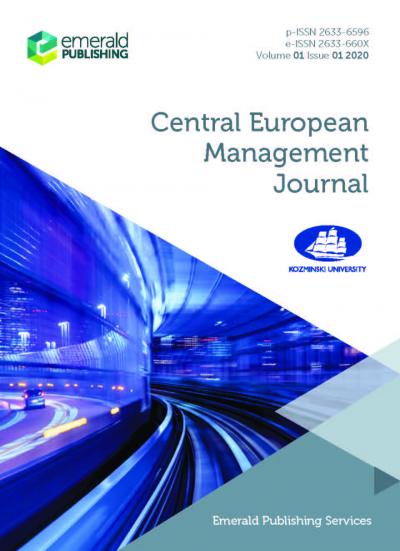State Autonomy in Shaping Tax Policies: Facts and Myths Based on the Situation in OECD Countries
Jacek Tomkiewicz
Kozminski University, Poland

Marta Postuła
University of Warsaw

07.2020 28 (2) Central European Management Journal
DOI 10.7206/cemj.2658-0845.23








